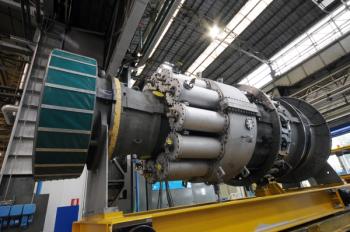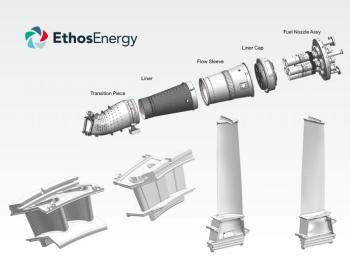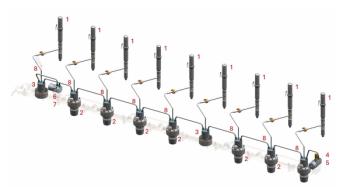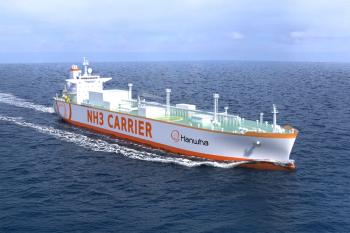
Rolls-Royce Supplies Engines, Generators for Polish Navy Frigate
A new Miecznik frigate will comprise four mtu 20V8000 main propulsion engines and four mtu 12V4000 on-board generators.
The Polish Navy has contracted Rolls-Royce to deliver mtu propulsion engines and marine generator sets (gensets) for the first of three Miecznik multipurpose frigates—the equipment is now being assembled at a Rolls-Royce facility in Friedrichshafen, Germany. The mtu 20V8000 main propulsion engines have an output of 8,200 kW each and the mtu 12V4000 on-board gensets have a mechanical power output of 1,650 kW each.
“This order, as part of our strategic initiative in the government business, only further consolidates our position in the market for propulsion systems for very fast ships,” said Paul Röck, Defense Sales Director at Rolls-Royce. “With these systems, we are also supporting our NATO partner Poland, with whom we have a long-standing partnership.”
Two propulsion engines will be installed per propeller and used flexibly in varying combinations, such as single-engine operation for slow patrols or high-speed, four-engine operation at more than 20 knots. The on-board gensets power the electrical grid for ship and mission operations without assistance from the propulsion engines. Series 8000 propulsion engines—the 20-cylinder variant—can have an output of up to 10,000 kW and are characterized by high acceleration, economical operation, and low maintenance requirements.
"The wide performance range of the 8000 series, from unlimited low-load operation to rapid deployment, is of particular interest to government and armed forces vessels," Röck said.
Miecznik-class ships have a range of approximately 8,000 nautical miles, a cruising speed of 12 knots, and are equipped with weapon and mission systems to monitor and control sea areas, protect naval bases, and attack targets on the surface, underwater, on land, and in the air. The first Miecznik ship, based on the British Arrowhead 140 concept, is being constructed at the Polish-owned PGZ shipyard in Gdynia. This ship is scheduled for launch in 2026 and commissioning by 2030, with the remaining two ships delivered to the Polish Navy by 2031.
Last week, the Japan Maritime Self-Defense Force (JMSDF) selected Rolls-Royce to
“Having previously been selected to power the JMSDF fleet, we’re delighted that the MT30 has once again been chosen to power the country’s vessels further reinforcing our long and successful history with Japan,” said Sam Cameron, SVP of Defense at Rolls-Royce. “Rolls-Royce continues to be at the forefront of naval propulsion technology and we’re proud to be providing the world’s first twin-MT30 hybrid arrangement to power Japan’s destroyer program.”
The MT30 generates a significant amount of power in a compact footprint and is currently operating or selected for all propulsion arrangements—mechanical, hybrid, and integrated-electric. Depending on the application, the gas turbine delivers power to water jets, controllable propellers, and fixed-pitch propellers. Within the Pacific Rim region, Rolls-Royce supplied the MT30 for South Korea’s Daegu- and Ulsan-class frigates and Australia’s Hunter-class frigates.
Newsletter
Power your knowledge with the latest in turbine technology, engineering advances, and energy solutions—subscribe to Turbomachinery International today.




